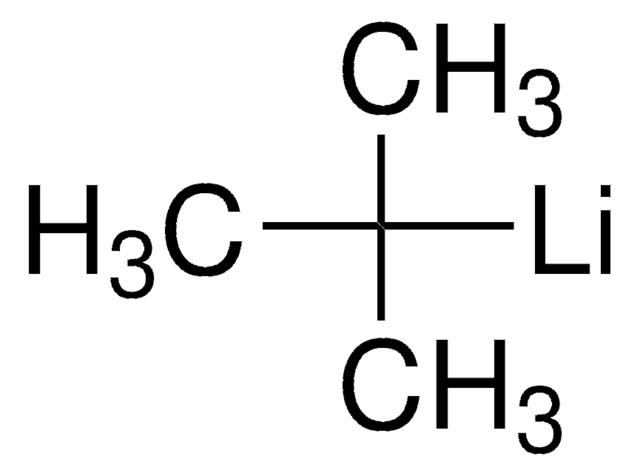20159
n-Butyllithium solution
2.7 M in heptane
Synonym(s):
n-BuLi, Butyl lithium, Butyllithium solution, Lithium-1-butanide
About This Item
Recommended Products
form
liquid
Quality Level
shelf life
limited shelf life
concentration
2.7 M in heptane
color
yellow
density
0.71 g/mL at 20 °C
storage temp.
2-8°C
SMILES string
[Li]CCCC
InChI
1S/C4H9.Li/c1-3-4-2;/h1,3-4H2,2H3;
InChI key
MZRVEZGGRBJDDB-UHFFFAOYSA-N
Looking for similar products? Visit Product Comparison Guide
Application
Caution
related product
Signal Word
Danger
Hazard Statements
Hazard Classifications
Aquatic Acute 1 - Aquatic Chronic 1 - Asp. Tox. 1 - Eye Dam. 1 - Skin Corr. 1B - STOT SE 3 - Water-react 1
Target Organs
Central nervous system
Supplementary Hazards
Storage Class Code
4.2 - Pyrophoric and self-heating hazardous materials
WGK
WGK 2
Flash Point(F)
Not applicable
Flash Point(C)
Not applicable
Personal Protective Equipment
Choose from one of the most recent versions:
Already Own This Product?
Find documentation for the products that you have recently purchased in the Document Library.
Customers Also Viewed
Our team of scientists has experience in all areas of research including Life Science, Material Science, Chemical Synthesis, Chromatography, Analytical and many others.
Contact Technical Service











